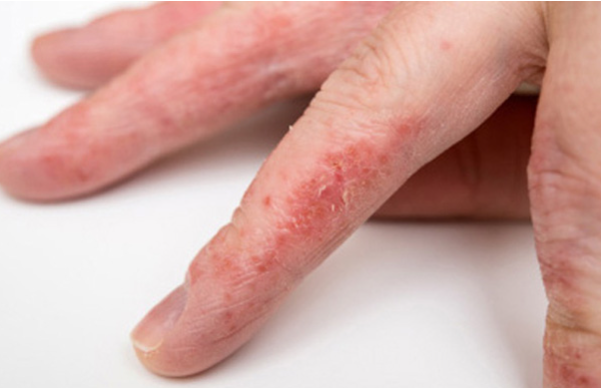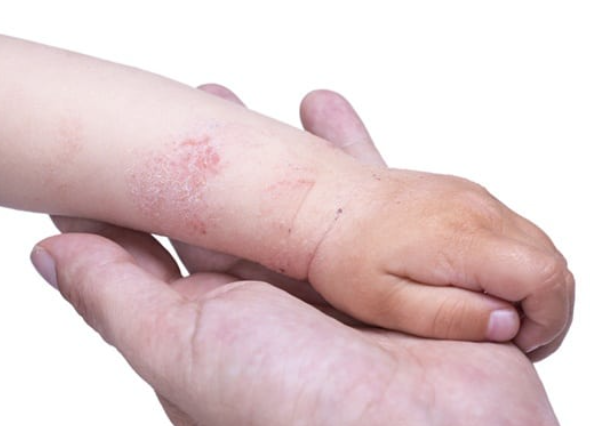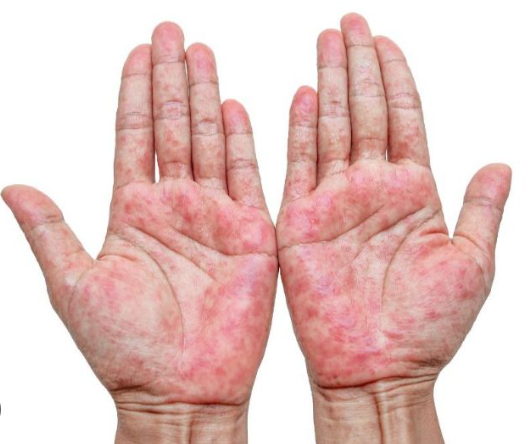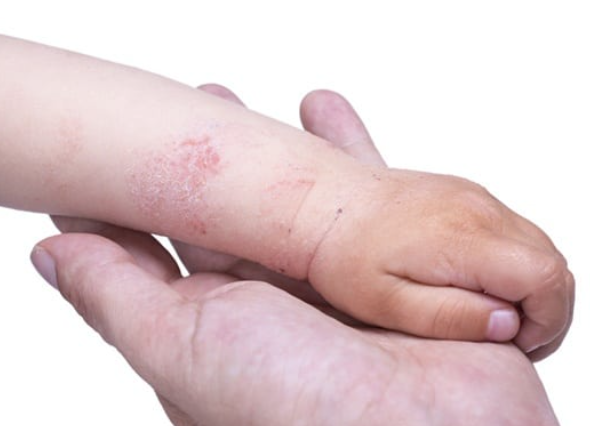Eczema (also called atopic dermatitis) is a chronic skin condition that causes inflammation, redness, itching, and dryness. It is common in children but can affect people of all ages. Eczema is not contagious but tends to flare up periodically.

Causes of Eczema:
Eczema doesn’t have a single cause; it develops from a mix of genetic, immune, and environmental factors:
- Genetics
- Family history of eczema, asthma, or hay fever (allergies).
- Mutations in the filaggrin gene → weak skin barrier → skin loses moisture easily and is more open to irritants.
- Immune System Dysfunction
- Overactive immune response → skin inflammation, redness, and itching.
- Skin Barrier Problems
- Skin is less able to retain moisture and protect against bacteria, irritants, and allergens.
- Environmental Triggers
- Irritants: soaps, detergents, perfumes, shampoos.
- Allergens: dust mites, pollen, pet dander, mold.
- Climate: dry air, heat, sweating, cold weather.
- Stress and emotional changes.
- Certain foods (in some people, e.g., dairy, nuts, eggs, wheat).
Symptoms of Eczema:
- Dry, sensitive skin that feels rough or scaly.
- Itching (often severe, worse at night).
- Red or inflamed patches of skin.
- Swelling and irritation in affected areas.
- Rash that may appear on the face, neck, hands, inside elbows, behind knees, or other body parts.
- Thickened, cracked, or leathery skin (from long-term scratching).
- Small bumps that may leak fluid and crust over when scratched.
- Darkened skin areas after healing (post-inflammatory hyperpigmentation).

Treatment of Eczema:
1. Daily Skin Care
- Use moisturizers (creams/ointments, fragrance-free) several times a day.
- Take lukewarm baths (not hot) and apply moisturizer immediately afterward (“soak and seal” method).
- Use mild soaps and cleansers.
- Wear soft cotton clothing, avoid wool and rough fabrics.
2. Medications
- Topical corticosteroids (hydrocortisone, betamethasone) → reduce redness and itching.
- Topical calcineurin inhibitors (tacrolimus, pimecrolimus) → used on sensitive areas (face, eyelids).
- Oral antihistamines → help relieve itching, especially at night.
- Antibiotics → if bacterial infection develops.
- Oral corticosteroids / immunosuppressants (in severe cases, under medical supervision).
3. Other Therapies
- Phototherapy (UV light therapy) → for moderate to severe cases not responding to creams.
- Biologic injections (e.g., dupilumab) for severe chronic eczema.
4. Lifestyle & Prevention
- Identify and avoid triggers (soaps, allergens, stress, certain foods).
- Keep home air humidified in dry climates.
- Manage stress, since it can worsen flare-ups.

